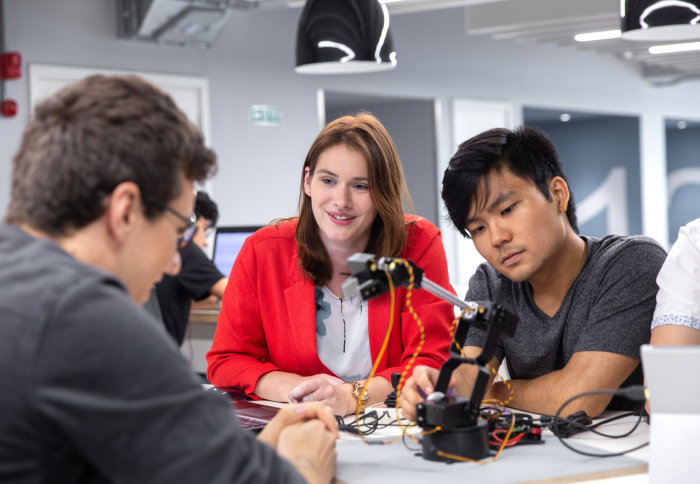“Universal controller” could pave way for more assistive tech

A team of Imperial students is aiming to help people with disabilities get access to the technology that can make their lives easier.
The students want to boost the development of assistive technology – devices that support people with disabilities to perform tasks they might otherwise find difficult or impossible.
 They have developed a software called the Universal Controller, which would allow different technologies and devices to be controlled in a variety of different ways – such as via voice controls, joysticks, or eye tracking.
They have developed a software called the Universal Controller, which would allow different technologies and devices to be controlled in a variety of different ways – such as via voice controls, joysticks, or eye tracking.
The students hope their project will mean people with different disabilities will be able control technology like wheelchairs, robotic arms and smart home technology in the way that best suits their specific needs.
The team were all participating in Imperial’s Undergraduate Research Opportunities Programme (UROP), which gives undergraduate students the opportunity to participate in research under the supervision of academic staff. The Universal Controller project was proposed and funded by children’s charity Wooden Spoon, with the aim of providing an infrastructure to promote development in the field of assistive technology by helping developers fast track their ideas.
Bridging the gap

The group have developed three prototype systems to demonstrate the “universal controller” – a system for controlling a robotic arm that can be connected with various different input devices, an interface with Amazon Alexa for users with limited vocal capabilities, and a cooking system with a “smart” pan for people with special educational needs to help guide them through the cooking process.
The software will be open-source, meaning developers can contribute and develop the system further, create add-ons, and adapt it to their own requirements.

Team member Fiona Boyce said: “We want to be able to make technology more adaptable for individual needs. Most assistive technology is bespoke, which means it’s expensive. Additionally, devices have completely different operating systems and communication methods so don’t interact with one another. Our idea is to create software that would bridge this gap and make it easier for developers to incorporate accessibility into their products.”
The team includes: Fiona Boyce (Mechanical Engineering), Terence Seow (Mechanical Engineering), Husheng Deng (Electrical and Electronic Engineering), Joan Tso (Computing), Rachel Tan (Bioengineering), Yong Shen Tan (Bioengineering), Sung Kyun Yi (Bioengineering), Maksim Lavrov (Bioengineering), Balint Hodossy (Bioengineering), and May McCool (Bioengineering). They were supervised by Dr Ian Radcliffe, a Teaching Fellow in Engineering Design.
Article text (excluding photos or graphics) © Imperial College London.
Photos and graphics subject to third party copyright used with permission or © Imperial College London.
Reporter
Deborah Evanson
Communications Division